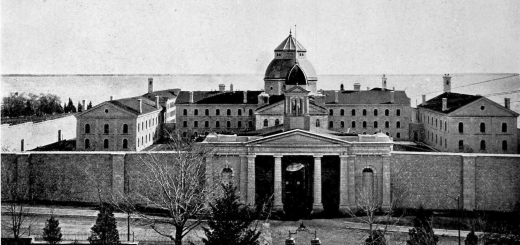R v Boulanger: Breach of the Public Trust
On July 13, 2006 the Supreme Court of Canada handed down a unanimous judgement in the criminal breach of trust (s. 122) case R v Boulanger, 2006 SCC 32, and entered an acquittal. The facts of the case were relatively simple: the accused was a police officer whose daughter was involved in a car accident. Mr. Boulanger asked the officer in charge of the case, who was one of his subordinates, to prepare a supplementary report, which had the effect of clearing his daughter of any responsibility for the accident. That sounds pretty bad, but to be fair, the trial judge found that Boulanger didn’t exercise any influence over the content of the report, and also concluded that the report was accurate.
The law on criminal breach of trust before Boulanger was in pretty bad shape. There were originally two common law offences: one for specific and intentional breach of the public trust, and one for neglect in a public office. Though only the former was codified in the Criminal Code, the Canadian courts have been conflating and confusing the two for over 100 years. The end result was that we had an offence that required no mens rea and no harm to the public; just an action by a public official contrary to a regulation or employment contract that resulted in some benefit to the accused. Given that rubric, I can understand the lower court convictions.
After a lengthy discussion of the offence’s history (warranting 18 of the 34 pages in the decision? You decide) the Chief Justice rolled out a straightforward clarification of the offence in a five point test. The actus reus is now largely the same as the criminal negligence test set down in R v Creighton, [1993] 3 SCR 3: a “marked” departure from reasonable behaviour. Notably, the standard imports some subjective elements – it is anchored to a reasonable public official, not a reasonable person. A subjective mens rea element is also reintroduced into the offence: the accused must have intended to use his office for something other than the public good.
This is clearly an important issue in Canada. Our most recent federal election was largely prompted by the Sponsorship scandal. And the breach of trust offence is complicated in that it must balance two competing interests. On the one hand, the people and government of Canada have a right to demand that their public officials not abuse the unique power they exercise in office. The jobs of public officials are qualitatively different than most in the private sector. On the other hand, to hang the spectre of criminal prosecution over every member of the public service, for every minor transgression, is clearly not acceptable.
I think this decision is a good one: it draws upon earlier authority, and strikes a fair balance between the two concerns above. It also gets rid of the problematic “personal benefit” requirement which had started seeping into the offence via the provincial appellate courts. However, I see two problems.
Firstly, the language they use when outlining the test is “something other than the public good,” but when the SCC applies the mens rea component to the facts, they write that Mr. Boulanger did not have any intention to “betray the public trust” or “undermine the public good.” They seem to apply their own test more stringently than earlier framed, and I hope the trend doesn’t continue. Intending to use one’s office for something one knows to not be in the public good is appropriately reproachable. There is no need to elevate the mens rea requirement to intentionally sabotaging, undermining, or betraying the public interest.
Secondly, the SCC does not indicate whether the accused needs to intend to act contrary to the public good as the accused himself conceives it, or whether the accused needs to intend to act contrary to some independently defined “public good.” In R v Dytham, [1979] QB 722, a police officer was convicted of breaching the public trust when he stood by and watched a man be beaten to death. Could that behaviour now be excused if the accused honestly and truly believed that the death was in the public interest? Though the officer could still be tried for criminal negligence, it would seem only appropriate that the offence of breach of the public trust apply to a situation where a police officer calmly allows a death to occur.
To close off my first post, I would like to urge the reader to comment. Any comment will be welcome, from any reader, from any walk of life. I will certainly try to respond and to clarify.
And for some other opinions on this judgement from the blogosphere, check out Criminal Review and Pith and Substance.






Join the conversation